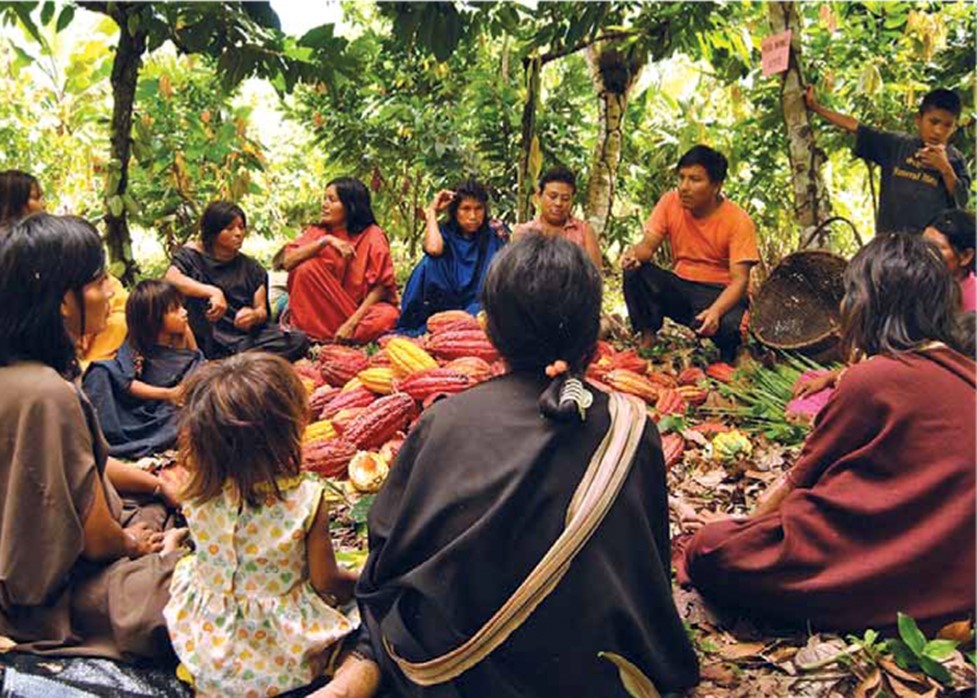CFC in the book “Value chain development and the poor” – Development Impact Bonds
The Common Fund for Commodities is proud to have contributed to the book Value Chain Development and the Poor: Promise, delivery, and opportunities for impact at scale. The CFC supported with the chapter Development impact bonds: Learning from the Asháninka cocoa and coffee case in Peru.
Development impact bonds (DIBs) constitute an innovative performance-based financing instrument using private funding to achieve public objectives, such as poverty alleviation, food security or unemployment. Moreover, they replace the upfront financing of charitable activities with a pay-for-success contract. Four actors – the outcome sponsor, investor, project implementers, and verifier – agree together upon the outcomes of their indicators. Private investors invest in the project, and they rely on service providers for project managements. If the project is successful, confirmed by independently verified evidence, the funding agency (usually a public sector agency) consequently repays the investors.
Despite the strong potential of DIBs, these are not commonly used yet as they imply changes in the financial structures of conventional donor and government agencies.
In 2014, the CFC initiated and successfully completed the first-ever commodity value chain development project finance via a DIB. This pilot experiment involved the Asháninka community in Peru, in partnership with other actors with specific roles. The Asháninka people of the Ene River live in remote forest villages in one of the most biologically diverse areas on the planet – the Peruvian Amazon. They rely on the forest for food but are impoverished due to extremely limited infrastructure and poor-quality health and education services.
For the DIB structure, the CFC was the outcome sponsor committed to pay the investor for the results achieved, the Schmidt Family Foundation (SFF) was the investor, Rainforest Foundation UK (RFUK) was the provider performing all activities. Lastly, the Royal Tropical Institute (KIT) was the independent party to verify the accomplishment of the jointly agreed results.
The goal of the DIB was to support the Asháninka people by assisting the members of their cooperative, the Kemito Ene Association, in the establishment of an environmentally sound production and marketing system for cocoa and coffee. The impact indicators included targets for sales increase, productivity gains, volume of cocoa sold and number of farmers installing improved coffee varieties.
In 2019, the cooperative Kemito Ene has been awarded the biennial UN Development Programme’s Equator Prize in recognition of its “outstanding community effort to reduce poverty through the conservation and sustainable use of biodiversity”.
Indeed, through Kemito Ene’s work, the increased quality of cocoa attracted the attention of international buyers who signed a partnership with the Asháninka-run cooperative, thus allowing export to shops in the UK, Europe, and the US for the first time.
The CFC is proud to have participated in this successful project while also helping to conserve one of the most biodiverse places on the planet. The CFC hopes to have more opportunities to be involved in such projects, in line with its mandate of financing commodity producers and vulnerable people worldwide.
For more information on DIBs and a full analysis of the Asháninka cocoa and coffee case in Peru, please refer to the Chapter 4 of the book: https://practicalactionpublishing.com/book/2527/value-chain-development-and-the-poor.

